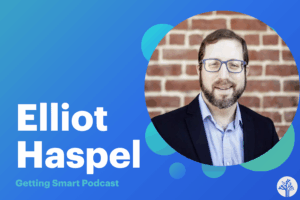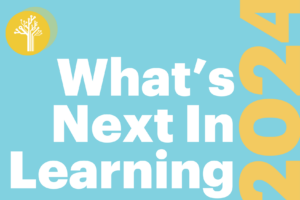10 Things I’d Do Right Now As a Superintendent

A public school superintendent asked me last week what I’d do right now. Here’s a list of ten projects for fall 2011:
- Plan for the shift to personal digital learning in three phases over the next 3-5 years. You need six coordinated plans considering content and instruction, assessment and data, devices and broadband, staffing and professional development, fiscal impact, and communications. Ask the planning team to start by reading The Rise of Blended Learning.
- Shift all Advanced Placement courses online and offer all 34. You’ll save money and boost options. For the course you can enroll 200 students, use your own staff. For lower enrollment courses, use a partner. Create and staff a cool lounge area (similar to many IB schools) where high school students can study and get in person support.
- Expand world language offerings K-12 starting with high school. Offer at least 6 languages (Arabic, Chinese, French, Russian, Spanish, Portuguese) in high schools and, like #1, do it online and staff it yourself where you have the numbers.
- Build or adopt a dropout prevention/recovery strategy. A lab with some credit recovery software is better than nothing, but you need to identify kids at risk and provide them with a well supported competency-based pathway to graduation. You could just call AdvancePath and tell them to open an academy with your teachers in the second semester (disclosure: I’m a director).
- Launch a blended middle school math pilot with a lead teacher, a double block, an online curriculum, and a handful of complementary game-based content. This is a great place to show the rest of your district how competency-based learning works. Like Carpe Diem, you can augment online learning with workshops and small group support.
- Like Chicago, follow Rocketship’s lead and use learning labs to target instruction and extend the elementary day. A partnership with a community-based organization is another Chicago strategy to stretch the day.
- Serve special needs students with online learning. Presence Learning and Connections Learning offer speech therapy that, compared to traditional staffing, works better, costs less, and is available on demand.
- Pilot tablets and digital content. Investigate open content and bring-your-own-device environments. This pilot project could be combined with #2-6 above.
- Work with employee groups on staffing and development plans that anticipate new roles and relationships.
- Listen hard and communicate clearly with state and community members about the intent, the goals, and the process.








Thad Haines
Great ideas and point, however I would like to see the world language offerings expanded and start in the early years to take advantage of the ability of younger students to more easily learn the language.
John Joseph
I really like the idea of placing all AP courses online, everywhere - and starting with schools that currently lack the infrastructure to support AP courses. While the reasons vary from (actual) lack of funding to (perceived) lack of demand, the reality is that any school is likely to have students who are interested in these courses - and it is an injustice on multiple levels that they should not have access to them.
Mary Currie
Thanks for posting this Suzanne. Since I'm a school nurse, I would add that all staff/employees would be penalized if their BMI's went over a certain limit (similar to the tabacco clause). It's only through our example that we can impact each students perception and how to live their lives. The vast majority of illnesses, heart problems, etc. is with those that are not mindfull of their bodies health.